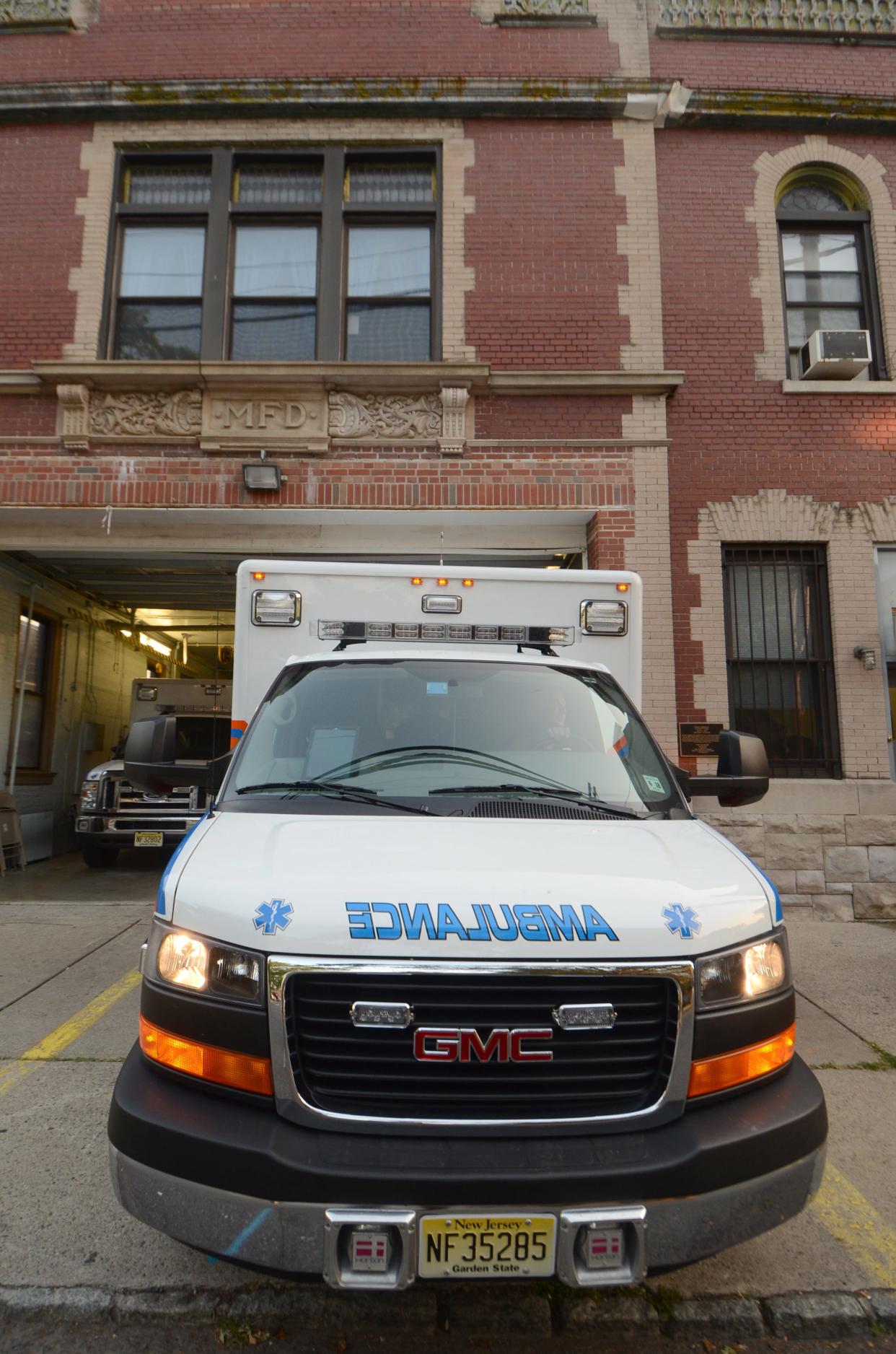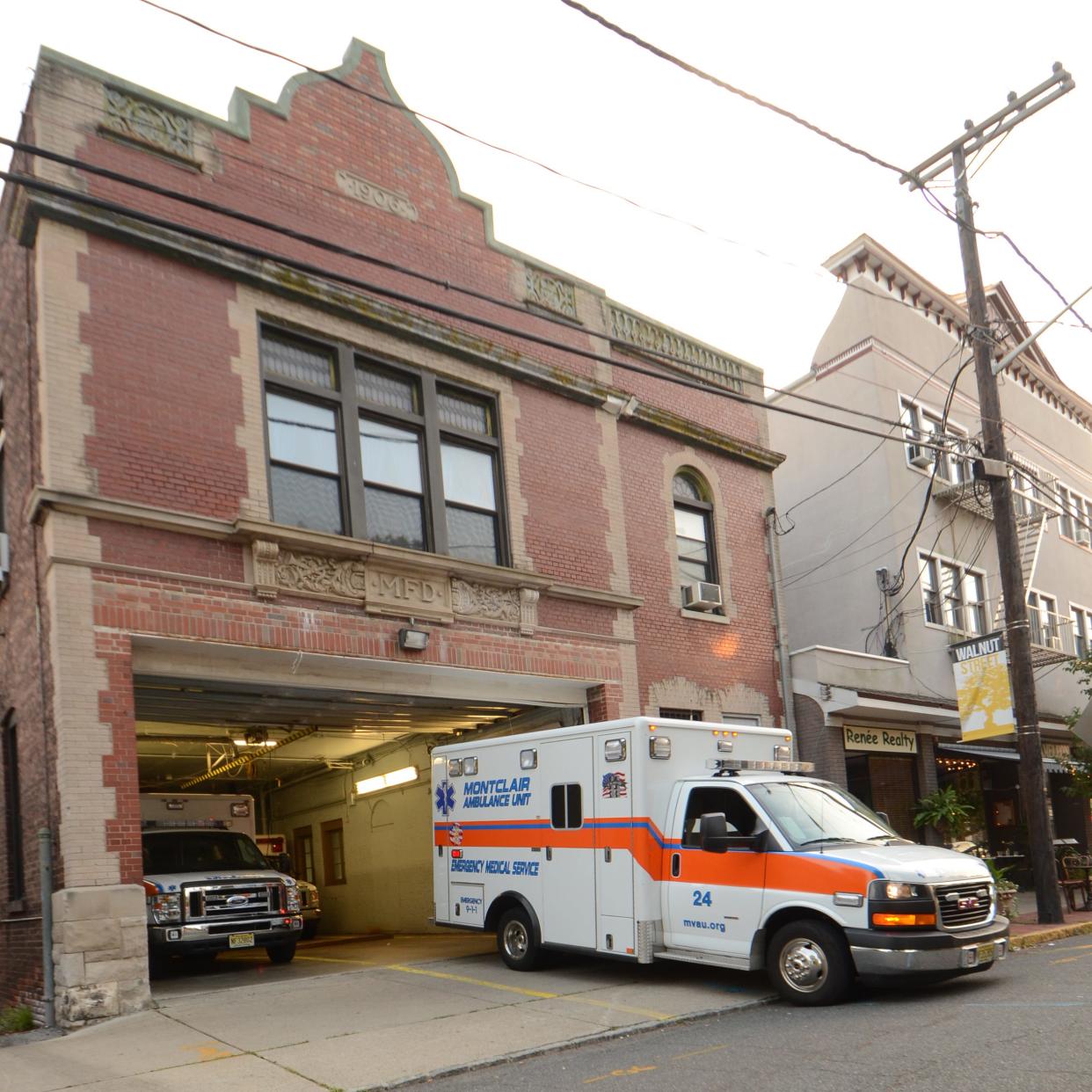State EMS system 'close to collapsing' without funding, ambulance chief warns
An EMS crisis may be unfolding right in front of us.
"This system is damn close to collapsing," said the chief of Montclair Ambulance Unit James Mazza in describing the current state of EMS in New Jersey.
New Jersey is one of 37 states that do not declare the EMS industry to be an essential service. Since that is the case Mazza's ambulance agency does not receive any funding at the federal, state and local level.
Mazza said their agency can barely operate this way. He argues that they should be an essential service as they are prepared to save lives on a daily basis. "We can not be public safety receiving money only on the health care model," he said.
Montclair EMS deals with a plethora of expenses, and Mazza explained many of their systems are outdated because of the agency's lack of money. They spend nearly $30,000 to $50,000 a year on medical supplies and medical equipment. Since they are not a volunteer agency, their biggest expense is payroll in order to staff the ambulances.
Mazza said a new radio would really be a huge upgrade but it costs between $9,000 to $10,000. A new stretcher system would be a "game-changer" for the ambulance agency but they can cost up to $70,000 per ambulance.

Mazza said it is also important to note that all EMS systems operate differently. "If you understand one agency's model, you understand one," he said.
There are for-profit, non-profit, hospital and municipal systems. For an agency like the one he operates, which is a non-profit system with paid employees, he said "an agency like ours, it is critical to get funding."
He said his specific branch needs funding at every government level in order to function. Mazza told NorthJersey.com that Montclair EMS has been losing so much money due to their lack of funding. He explains the specifics on what the agency deals with and what can be done to save EMS.
What they lose on Medicaid
Mazza explained that most of the money that gets lost is for the lack of reimbursement the agency gets when serving their Medicaid patients.
He said Montclair EMS lost approximately $260,000 in 2023 "serving those patients who need us most." The New Jersey rate for Medicaid reimbursement for EMS transport was set in 1994 at $58 a call, and $1.50 a mile. That remains the current rate today, which puts New Jersey as having one of lowest reimbursement rates for Medicaid, according to Mazza who received the information from American Ambulance Association.
Within the northeast region, other states such as Connecticut have a Medicaid reimbursement rate of $293.90 per ride, according to legislation advocating for the increase of New Jersey Medicaid reimbursement rates to ambulances.
"A third of our calls with the Montclair ambulance unit were with Medicaid or uninsured patients where we are going to receive $58 a call and our out-the-door expenses last year were $363.78," said the chief of Montclair ambulance unit as he describes how ambulances spend so much money yet do not get enough funding in return.
What about insurance?
Montclair EMS says they have to bill insurance companies extra to subsidize for the losses they experience with Medicaid. They charge insurance $1,300 fee per ambulance ride and $30 a mile.
"The hope is we get better reimbursement rates from a private insurance company to subsidize those Medicare patients," said Mazza.
He explains that for insured patients, the services of Montclair EMS are considered "out of network" which means insurance companies will only cover a portion or none of the bill and patients must pay for the rest. Mazza said the agency prefers to remain out of network because it allows them to receive the maximum amount of dollars. When they are in-network, he said insurance companies expect a lower rate.
"If funding was no object, I would go in network with every other insurance agency. We are not looking to turn a profit, we are looking to cover the cost of our business operations," he said.
Insured patients
Where does that leave insured patients? More times than not, stuck with the bill.
Since ambulance services must be considered "out of network" in order to help them get money for their operations, patients are stuck with an ambulance bill that at times can be astonishingly expensive. It is a national problem and is no different in New Jersey. Approximately 64% of ambulance rides yield a surprise bill in New Jersey. The medium ambulance bill in the Garden State is $437, per a previous CBS report.
One New Jersey nurse told her story to NorthJersey.com about how her son was left with an ambulance bill that reached close to $6,000 before she had to battle the insurance to dispute her claims. The Sussex County resident calls for ambulance rides to be deemed "in network" and called it immoral how insurance companies charge so much to patients.

Potential solutions and legislation
After she was left stunned with her son's ambulance bill, the New Jersey nurse wants legislative action. She advocates for ground ambulances to be included in the No Surprises Act, a federal legislation that bans surprise bills for most emergency services.
Mazza said he would push for other laws to be put in place before ambulances are included in the No Surprises Act. He said his agency should be funded at the national, state or local level before they can be considered an in-network cost. He said that the if the legislature is an unfunded mandate then the "EMS crisis that already exists in this country, with many agencies shutting down, will spiral out of control."
"If there are different funding mechanisms at every single level, then it would make sense to include ambulances in the No Surprises Act," said Mazza. He said he sympathizes with insured patients, but called for further funding before that bill is passed at the national level.
Additionally, Montclair EMS would advocate for higher rates on Medicaid.
Currently, a bill titled S-1423 passed a NJ Senate Committee and has been referred to the Senate budget committee as of March. This legislation would establish an increase of the Medicaid reimbursement rate to $200 for basic life support emergency ambulance transportation services. Mazza said this bill, along with the identical Assembly bill titled A-3650, which has not had a hearing yet and is sitting in the Assembly Aging and Human Services committee, would provide much needed relief for his agency.
He understands that even if these bills get passed, his agency would still need more funding in order to function at a high level. However, he appreciates the awareness that is growing with this issue and has optimism on the future.
"We aren't over the finish line by any means but I believe with more visibility on this issue we might see some real meaningful change," he said.
This article originally appeared on NorthJersey.com: EMS chief warns ambulance system 'close to collapsing'
